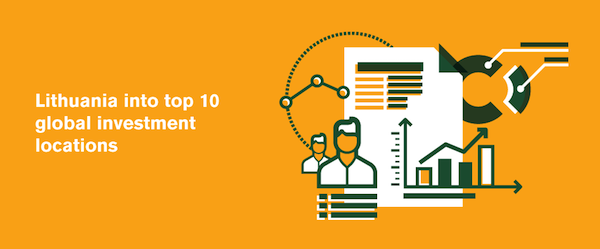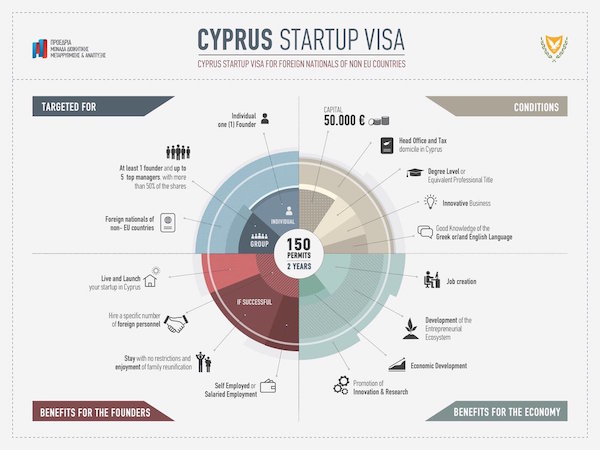Just a few months ago, we told you how European countries were beginning to expand their startup visa programs for expat entrepreneurs.
That was January. The Trump presidency was five days old. Speculation on how Trump would try to squelch the open, free-trade international marketplace was still just speculation.
 The world “knew.” But it didn’t yet know!
The world “knew.” But it didn’t yet know!
Four months later, we’ve seen how he’s going after the H1-B visa program, trying to ban foreign talent, restricting the world’s best and brightest from entering the United States.
Just so you understand how dramatic the implications of this might be, Facebook had 15 percent of its U.S. workforce on temporary visas in 2016.
Is it any surprise that European countries have become more aggressive in giving these best-and-brightest a home?
Baltics go all in on startup visas
We reported last time about tiny Estonia (population 1.3 million) punching above its weight.
Now here comes neighboring Lithuania with a fast-track visa program of its own for non-EU startup founders.
According to VentureBeat, “Lithuania has launched a new Startup Visa program designed to encourage citizens from outside the European Union to set up businesses in the small northern European Baltic state.”
The point of the program is for little Lithuania to attract those “gifted and ambitious innovative startup founders from all around the world” who’ve been seeking refuge in The Netherlands, Germany, and Britain – or the U.S., before Trump suddenly lowered the gates on the roughly 65,000 workers and 20,000 graduate students who’d entered the U.S. on the H-1B program.
Startups eligible for Lithuania’s Startup Visa program include any that adhere to “scalable and innovative business models” across electronics, biotech and, says VentureBeat, “the broader IT umbrella.”
Lithuanian fast-track residency is offered to the founder and his or her family. (You can get more information here on the Invest Lithuania website.)
“We see startups as an integral part of an innovative economy,” said Mindaugas Sinkevičius, Lithuania’s minister of economy. “So we open our doors to talent that will both embrace and contribute to our 320-strong startup ecosystem.”
Lithuania has had some success with commercial tech start-ups such as Pixelmator, an image-editing app, and Game Insight, a mobile gaming company. Vinted.com, a clearinghouse for people wanting to sell or buy secondhand clothing, was founded in 2008 in Vilnius, thanks to an investment from Lithuanian entrepreneur Mantas Mikuckas.
It has a reported 15 million members.
Now, says VentureBeat, Lithuania wants its new visa program “to create something from the ground up and to build on the broader region’s track record of producing top tech talent — the likes of Skype, TransferWise, and Fortumo, all of which emanate from neighboring Estonia.”
And perhaps, increasingly, neighboring Latvia.
In November, the parliament of Latvia – which sits right in the middle of the three Baltic nations – passed a new law to encourage young startups to set up shop there. The new tax system effectively doubles any money invested by venture capitalists.
Labs of Latvia is a platform started by Kristaps Zālītis and Arnis Ozols that seeks to aid startups – either native to Latvia or seeking to do business in Latvia – with advice, counsel, information and even resources.
All three Baltic countries are “emigrant countries” – more people leaving than arriving. And that’s been mostly educated young people. The IMF estimated in 2016 that, between 1995-2012, the cumulative real growth rate of Estonia would have been eight percentage points higher if the skilled emigrants had not left the country.
So all these countries, driven by the success of Estonian entrepreneurs such as Taavat Hinrikus, co-founder and CEO of London-based TransferWise, have been carrying out comprehensive immigration reforms to make themselves more attractive to skilled professionals.
Cyprus offers startup visa along with sun and surf
 The Republic of Cyprus has created a new Startup Visa program aimed at attracting entrepreneurs to establish business with high growth potential.
The Republic of Cyprus has created a new Startup Visa program aimed at attracting entrepreneurs to establish business with high growth potential.
Are there entrepreneurs out there looking for a home? Surfing for the best deals, the most-welcoming visa and residency arrangements?
So up steps little Cyprus, jewel of the Mediterranean, known for its weather, beaches and lifestyle. Add tech startups to the list.
According to the article “Cyprus Startup Visa” on the website mondaq.com, Cyprus’ Individual Startup Visa Scheme offers the founder (or founders – up to five):
• Immediate right to residence and work permit in Cyprus for one year, with the possibility of renewal for at least another year
• Right to self-employment or employment in his company (to be registered)
• Right to family reunification once the startup is deemed as successful
• The possibility to hire a certain number of foreign employees without the prior approval of the Labour Office, once the startup is deemed as successful
Conditions apply
The startup founder must have access to 50,000 euros in capital (about $53,000) either through venture capital funding, crowdfunding platforms, or other funding channels.
Also, the applicant must have an undergraduate degree or equivalent, and excellent knowledge of Greek and/or English.
Of course, the startup itself must be innovative, and the founder must be able to show why and how.
In the case of an already existing startup, an external auditor must certify that at least 10 percent of the operational expenses, in at least one of the previous three years, went to R&D.
And the business plan must certify that the company’s HQs will be registered in the Republic of Cyprus, and effective management of the company will take place there, as well.
Plus, of course, the ultimate conditions: The performance of the startup will be evaluated at the end of the second year. Presumably, if the company is not successful, all further bets are off.
The Cypriots may love the soft life, but they’re not soft-headed.














